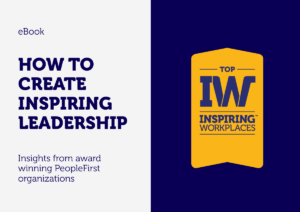
04th October 2023
How to Build an Adaptable and Resilient Business Through Leadership

In today’s rapidly changing business landscape, adaptable and resilient leadership is essential for a thriving organization. Leaders must adopt a situational approach, tailored to individuals’ needs, embrace transformational leadership to encourage innovation, and foster inspirational leadership that values and supports every employee. Furthermore, leaders should drive digital change by equipping their workforce with the necessary skills, promote diversity, equity, inclusion, and belonging (DEIB) to enhance productivity and profitability, and adapt swiftly to evolving conditions, ensuring a workforce ready for current projects and future opportunities.
From the original article written by a guest contributor and published in the EU Reporter:
Today, projects move on, and technologies evolve, faster than ever before. Set this against a backdrop of inflation, the climate crisis, and the growing complexity of technical infrastructures, and it’s no wonder that understanding how to adapt to change, and how to manage effectively in today’s ever-evolving working environment, tops leaders’ lists of priorities, writes Petra Jenner, SVP and GM, EMEA, Splunk.
To stay competitive, organizations need to make decisions that not only lay the foundations for success, but ensure their workforces are empowered to embrace change alongside them.
Evolving leadership styles
While leaders may have undertaken management training in years past, today’s workplace is vastly different from that of even a year or two ago. I believe leadership today must be three things above all: situational, transformational and inspirational.
Situational means adapting your leadership style to each unique situation or task to meet the needs of the team. No one person or employee is at the same stage of their career. As a manager, you must remain conscious that, for example, individuals in an earlier stage of their career may need more guidance and structure than those who have been with the same company for years.
Transformational leadership builds on this by encouraging employees to innovate and develop new ways to grow and improve the path to a company’s future success. Leaders must understand the next wave of disruptions, empowering workforces to make independent decisions within this framework of change, while also protecting them from risks.
‘Inspirational’ leadership means creating a secure space for people to innovate, collaborate and feel like they are valued. Every employee, regardless of how long they have been at an organisation, needs to feel appreciated and reminded that they are doing a good job. Research from McKinsey shows that in Europe, the majority (79%) of employees reporting low levels of engagement or support factors from leaders are likely to leave. Leading by example on this front is the first step towards a truly resilient organisation.
Embracing and driving digital change
Throughout my career, I have been lucky enough to be part of companies undergoing complex digital transformation, scaling teams across markets to drive initiatives forward. One of the biggest learnings over the 25 years I’ve been doing this is that true digital transformation isn’t about the technology Rather it’s about the mindset of an organisation.
Take the digital change that AI has brought, for example, which has become one of the biggest priorities for organisations in recent months. In fact, in Europe alone, the AI market is expected to grow by almost 40% annually. We saw this transformation first-hand at Splunk’s .conf23 conference in July where, following the announcement of our new AI Assistant, there was a real appetite from customers to see AI utilised, not as a replacement for people, but as a tool to support them in optimising response times, processing and cost efficiencies.
But no technology can work without the human skills behind it, meaning there is a job for leaders to ensure their workforces have the tools and knowledge to implement AI properly. A recent LinkedIn report found around half (48%) of employees in Europe want to learn more about AI, but 59% currently lack any formal training provision from their employer.
Organisations must focus on upskilling their workforce through bespoke training programmes to drive all manner of forms of significant digital change. There is also the opportunity to engage with education providers in the technology space who offer specific initiatives to reduce the barriers to move into disruptive technologies like AI for those at the beginning of their career.
We try to embody this idea of embracing and driving digital change, nurturing and investing in the next generation of digital talent through early talent programmes, graduate schemes and internships, and a 24/7 training platform designed to build confidence and encourage lifelong learning. Fostering the next wave of digital talent is something I’m extremely passionate about.
Download our eBooks on:
How to Create Inspiring Leadership







